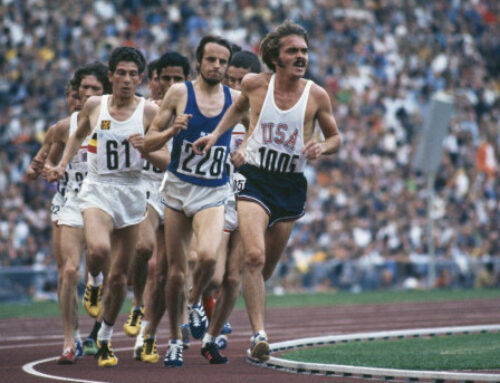Why Most Practice Fails
February 11, 2016
Categories: Excellence
This post is Part 3 in a 5-part blog series on developing excellence. (If you missed the first post, you can find it here.)
One of the most popular theories for how people become excellent at something involves hard work and practice. In this blog post, I want to talk about why practice often fails to create excellent performance.
Maybe you have had this experience: You really want to become great at something, so you put in a lot of time in practice. But try as you might, you don’t see all that much meaningful improvement. Eventually, you probably quit, concluding that you don’t have the ‘talent’ for whatever it is you were trying to do.
There has been quite a bit of research showing that lots and lots of accumulated practice generally results in a person becoming an expert at a particular skill. In his book Outliers, Malcolm Gladwell made popular the 10,000-hour rule, which says it takes 10,000 hours (or about 10 years) of practice to become an expert at any skill.
But it’s not just any type of practice. It has to be a particular kind of practice. Some authors call it deliberate practice, whereas others call it DEEP practice.
But what is DEEP practice?
I think understanding DEEP practice is key to improving any skill. Our misunderstanding of DEEP practice is one of the biggest reasons we don’t get better at the things we do in our lives, even though we spend hours and hours working and practicing.
Most of our practice is shallow.
Let me give you an example from my own life. I’m a below average basketball player. I played YMCA basketball when I was little, and got cut from the team in high school. The highlight of my basketball career was winning a co-ed intramural championship in college. (I recruited really good teammates.)
There have been times in my life where I practiced a lot of basketball, and got frustrated because I didn’t seem to be improving at all. But here’s what I would do to practice: I would start by doing a few layups, then shoot jump shots for about 10 minutes. Then I would look for a pickup game to join, and I would play for about an hour.
As we will see in the next blog post, I was doing shallow practice. Most of us do shallow practice. Because of our practice habits, we might spend a lot of time practicing the skill we want to improve, but we don’t see any improvement.
Shallow practice = No improvement. We can do better.
Action Step: Identify one skill in your life you want to improve. Spend 10 minutes and journal about the things you have done so far to practice that skill.
Related Thoughts
No Comments
Leave A Comment

Subscribe To My Newsletter
Join my mailing list to receive the latest blog posts.
Receive my e-book “The Mental Health Toolkit” for free when you subscribe.



Joshua: Why couldn’t you have written this 40 years ago when I was a young man? 😉 Thanks! How soon until the next post?
Haha, thanks Craig! I post on Mondays, Wednesdays, and Fridays, so the next one will go out Monday. (If you subscribe to the mailing list, all new posts will be delivered right to your inbox.)
[…] Most of our practice is shallow. Remember how I practiced basketball? I would just shoot around, and then try to find a pick-up game. As we will see, DEEP practice is very different from what most of us do in our everyday lives. […]